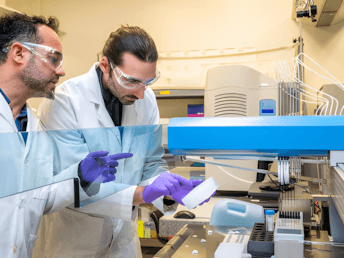Introduction:
Genetic testing is a core component of Weili’s precision medical services, aiming to comprehensively reveal individuals’ health risks, genetic predispositions, and drug response capabilities through the interpretation of genetic information. By analyzing genetic codes, Weili’s genetic testing services help users understand their potential health risks, personalize lifestyle and medical plans, and optimize disease prevention, risk management, and treatment strategies.
Weili’s genetic testing covers a wide range, including cancer screening, hereditary disease screening, pharmacogenomics, obesity susceptibility, mental health, and cardiovascular disease risk. Utilizing advanced AI and big data technology, Weili’s genetic testing can accurately assess each user’s individualized genetic risks. It not only predicts potential future diseases but also provides doctors with detailed drug metabolism information, aiding in the formulation of personalized treatment plans that minimize unnecessary drug side effects and significantly enhance treatment efficacy.
Through genetic testing, users can understand their hereditary risks related to cardiovascular diseases, diabetes, Alzheimer’s disease, obesity, and cancers, enabling them to take preventive health management measures in advance. Additionally, by analyzing drug response genes, users and doctors can more accurately select medications and treatment plans, optimizing drug effectiveness and avoiding adverse reactions.
Core Highlights:
- Precise Health Management: Identifying individual disease susceptibility through genetic testing, helping users intervene early, improve lifestyle, and reduce health risks.
- Optimized Drug Response: Individualized analysis of drug metabolism capabilities and responses, optimizing medication use and reducing side effects.
- Comprehensive Risk Assessment: Broad coverage of tests including cancer, cardiovascular diseases, obesity, and Alzheimer’s, providing holistic health risk predictions.
- Personalized Prevention Plans: Offering users tailored disease prevention strategies, helping them take early intervention measures to lower disease incidence.
Research Achievements:
- BRCA1/2 Gene Mutation Testing: Used to detect high-risk populations for breast and ovarian cancers, identifying users carrying BRCA1/2 mutations and assisting doctors in formulating personalized cancer prevention and treatment plans.
- TP53 Gene Mutation Screening: For patients with various cancers, TP53 gene mutations can predict cancer recurrence risks, helping doctors develop targeted treatment plans and improve cure rates.
- Pharmacogenomics Research: Weili precisely assesses drug metabolism capabilities through CYP450 gene testing, aiding in the formulation of personalized drug treatment plans, significantly reducing adverse reactions.
- APOE Gene Screening: For high-risk populations of Alzheimer’s disease, this tests mutations like APOE ε4 to predict cognitive decline risks, providing reliable bases for early intervention and treatment.
- EGFR Gene Testing: For lung cancer patients, Weili helps patients choose targeted treatment through EGFR gene mutation screening, greatly improving survival rates and quality of life.
- Obesity Susceptibility Gene Testing: By testing genes like FTO and MC4R, users can understand their weight management and metabolic capabilities, formulating personalized weight loss and dietary plans.
- Mental Health Genomics Research: For patients with depression and anxiety, testing genes like SLC6A4 and HTR2A helps doctors understand patients’ drug responses, optimizing mental health treatment methods.
- Cardiovascular Disease Susceptibility Gene Testing: By testing gene variants related to cardiovascular diseases, such as APOE and PCSK9, early cardiovascular disease risks can be identified, customizing personalized prevention plans.
- Diabetes Susceptibility Gene Testing: Weili has developed genetic testing for type 2 diabetes, identifying gene mutations related to diabetes risk, helping patients manage their diet and lifestyle proactively.
- Osteoporosis Gene Testing: By testing genes related to osteoporosis, such as COL1A1 and VDR, it provides assessments of bone health risks, helping users prevent bone loss and fractures.
Conclusion:
Weili Health Technology’s genetic testing services help users identify potential health risks through precise analysis of genetic information and provide personalized treatment bases for doctors. This technology not only aids in early disease prediction and intervention but also significantly improves the accuracy and efficiency of medical services, truly achieving personalized medicine and enhancing users’ quality of life.
